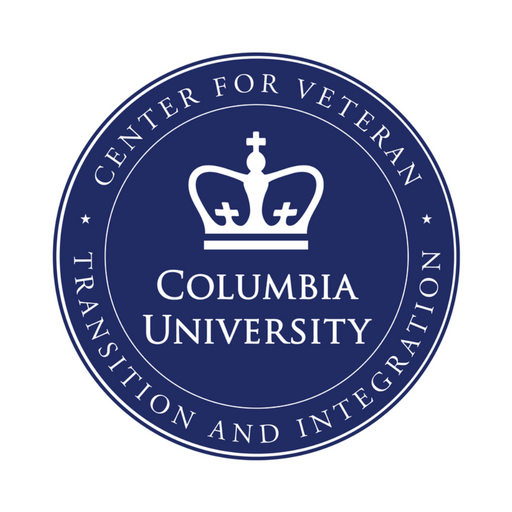Conference/CFP-Pluralisms in Emergenc(i)es: Movement, Space, and Religious Difference
The Institute for Religion, Culture and Public Life supports academic research, teaching, and scholarship on the study of religion, culture, and social difference at Columbia University. In addition, it convenes academic conferences, public forums, and collaborative programming to support and extend academic and scholarly understanding of these topics, and to disseminate and distribute such new understandings to broader publics and communities.
The Institute actively supports scholarship, teaching and public programming across the Faculty of Arts and Sciences as well as in the University more broadly under the auspices and oversight of the Department of Religion.
Overview
Pluralisms in Emergenc(i)es is the second conference in a series that explores pluralism as it emerges in response to contemporary global crises in the Middle East and North Africa. The conference situates Tunis as a historical epicenter of human, commodity, and capital mobility and, as such, pluralism. “Pluralism” is commonly understood as the recognition and affirmation of diversity within a governing body or set of institutional arrangements. Thinking of pluralism as a technology of power that helps to organize, exclude, and delimit people and their relationships, and is often articulated with special attention to religious difference, this conference addresses how pluralism becomes activated in emergency situations, utilized in different ways and towards different ends. The conference will interrogate the historical, social, and religious underpinnings of the so-called migrant and refugee crisis in order to position this moment as a state of pluralism in emergence, rather than a state of emergency.
The focus of this series itself emerges from a number of questions: What are the variations in how “pluralism” is understood, and how does it function in a time of crisis? Moreover, what are the material and immaterial modes through which pluralism takes shape? How do these terms change through the circulation of people (as migrants, refugees, and asylum seekers) and capital, whether under the auspices international development funds, religious aid, or new labor markets? Lastly, how have ideals of pluralism and multiculturalism and their modes of sociability, so often touted by many of these refugee-receiving countries, been awakened, shattered, or reinforced in response to the intense survival situations these refugees, migrants and residents face? This series aims to conceptualize and discern three distinct yet interrelated themes through which pluralism is articulated and/or affected: urban housing and architecture; collective memory and pluralism; and conceptualizations and comparisons of pluralism.
The conference in Tunis invites contributions from academics, NGO organizations, religious leaders, and civil society members who work in and on North Africa, the Western and Central Mediterranean Basin, including the greater Maghreb region (Mauritania, Morocco, Algeria, Tunisia, Libya), as well as southwest Europe (Spain, France, Italy).
Addressing Tunis as an exemplary site of exchange, the conference includes the following panels:
Panel 1. Emerging Housing and Emergency Settlement
- Built environments, and the relationships between migrant work camps, refugee housing, and improvised housing
- Labor migrants who become refugees in Maghreb
- Transition from temporary housing to permanent settlements, migration vs. immigration
- Shifting populations and compounding housing needs
- Racism and community politics in North Africa
Panel 2. Collective Memory and Identity
- Political economies of relation, like trade and fishing, and the memories of collectivity informed by these material formations
- Circulation and collective identity with a focus on migration and movement across colonial periods
- Migration and marabouts in Maghreb, regional and extranational collective identity
- Teaching of national history to refugee and migrant populations
- Intra-Maghreb pre-colonial migration and systems of colonial legal pluralism
Panel 3. On Religion and Refugees: Intersections from the Field
Consider the different modes of interaction and reception in these aforementioned locales to the regional migration crisis, looking at:
- Contemporary religious traditions and perspectives on hospitality
- Gender, religion, and migration and their intersections with international aid
- Facilitation and role of faith leaders to support displaced persons and aid refugees’ access to services, faith-based aid and shelters
- Incorporation of religious practice into design and refugee housing to accommodate multiple faith practices
- Practices and expressions of faith in the crossing of lands and seas
Panel 4. Conceptualizing and Comparing Pluralism in Emergencies
- Formation of new communal sensibilities through migration
- Formation of democratic practices and institutions in response to migration
- Coalescence of various identitarian politics – nationalist, religious, ethno-linguistic – into nascent politics of religious nationalism
- Evolving relations of refugees and potential refugees and the networks formed during migration processes
- Emergence of refugee/migrant hubs and their determining factors
Guide for Authors
Abstracts should be 250 words maximum in length. They should be titled and have all requisite bibliographic citations. Along with the abstract, please include a detailed, recent Curriculum Vitae/resume (no longer than 3 pages).
Abstracts will be evaluated according to the following categories: originality of theme, clear data, and methodology, clarity and relevance of the proposal to the conference theme.
For more information click "LINK TO ORIGINAL" below.
This opportunity has expired. It was originally published here:
http://ircpl.columbia.edu/2018/02/14/23857/?utm_source=ARMACAD.info&utm_medium=ARMACAD.info
